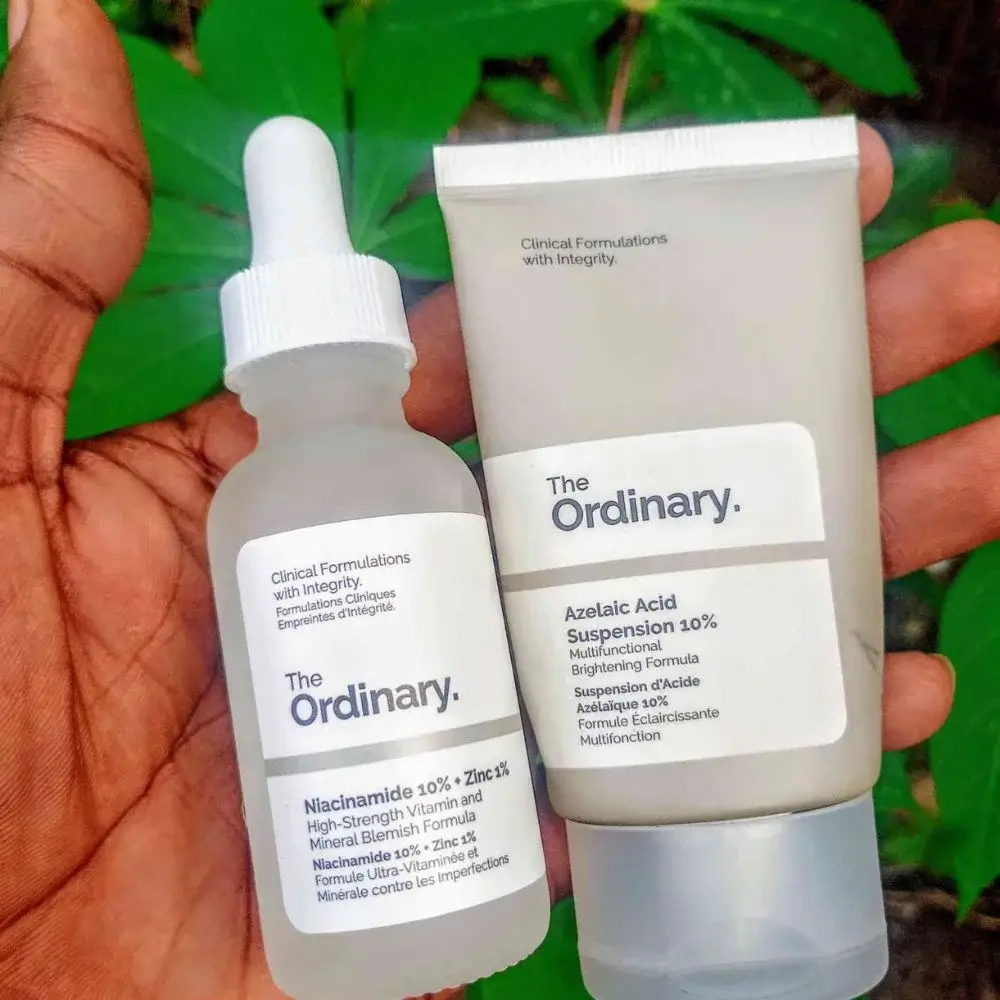Regarding skincare, we are often bombarded with product names and ingredients that we may not understand. One such ingredient is Azelaic Acid. Despite being a less commonly known ingredient, it has recently gained popularity. So, what exactly is this magical ingredient, and what are the benefits of using Azelaic Acid products? This blog post will answer all your questions about Azelaic Acid.
Reduces Acne and Acne Scars:
Azelaic Acid is a natural anti-bacterial, anti-inflammatory, and keratolytic agent. It prevents bacterial growth and reduces inflammation that causes acne, preventing future breakouts. Besides, it reduces the redness and hyperpigmentation caused by acne scars, making it an excellent solution for those who face breakouts and hyperpigmentation simultaneously.
Lightens Hyperpigmentation:
Azelaic Acid is famous for reducing hyperpigmentation, including dark spots and age spots. It works by slowing down the production of melanin, a pigment produced by our skin cells that gives color to our skin, hair, and eyes. Melanin production can lead to increased hyperpigmentation on the skin, but by using Azelaic Acid products, melanin synthesis can be kept in check, reducing the appearance of dark spots and uneven skin tone.
Anti-Aging Effects:
Azelaic Acid is not only effective at reducing acne and hyperpigmentation, but it can also slow down the breakdown of collagen, a vital protein that keeps our skin firm and supple. It works by reducing the enzyme activity that breaks down collagen, preventing premature aging signs like fine lines and wrinkles.
Manage Rosacea:
Rosacea is a chronic skin condition that causes redness, bumps, and visible blood vessels on the face. Azelaic Acid is often prescribed for Rosacea as it reduces redness and inflammation while suppressing the growth of harmful bacteria that cause acne.
Suitable for All Skin Types:
One of the best things about Azelaic Acid is that it can be used by everyone, regardless of their skin type. It is generally well-tolerated, even by those with sensitive skin types that can be tricky to manage. Unlike other active ingredients, it rarely causes irritation or allergic reactions.
Azelaic Acid is a powerhouse ingredient that has many significant benefits for your skin. It is an effective solution for a variety of skincare concerns, including acne, hyperpigmentation, anti-aging, and Rosacea. It is also safe for all skin types and rarely causes adverse skin reactions. So, if you're searching for a game-changing ingredient for your skincare routine, Azelaic Acid is definitely worth a try! Its potent properties and lasting results speak for themselves.
Suffering from acne or rosacea can be frustrating, and finding the right skincare product can feel like searching for a needle in a haystack. But don't worry, because we've done the work for you. Our team has researched and reviewed countless azelaic acid products to bring you the best of the best. Say goodbye to unwanted blemishes and uneven skin tone with our top picks. Click the link and explore our selection of the best azelaic acid products to find your next favorite skincare solution. Whether you're a skincare enthusiast or a newbie, you will love these products and the results they deliver.
What are some natural sources of azelaic acid, and can they be used in skincare?
Azelaic acid naturally occurs in grains like barley, wheat, and rye. While these grains contain azelaic acid, their utilization in skincare products is limited due to several challenges. Extracting azelaic acid from natural sources involves intricate processes that can result in variations in concentration, making it less suitable for consistent skincare applications. On the other hand, synthetic azelaic acid is specifically formulated for skincare, ensuring a stable and reliable concentration, which is essential for predictable and effective results.

What skin types benefit the most from azelaic acid products?
Azelaic acid is renowned for its versatility and can benefit a broad spectrum of skin types. However, it shines particularly in addressing the needs of individuals with sensitive, acne-prone, or rosacea-prone skin. This multifaceted compound possesses potent anti-inflammatory properties that reduce redness, inflammation, and irritation. Besides, it aids in controlling sebum production, making it a valuable asset for those dealing with excess oil or combination skin.

What are the differences between azelaic acid creams, gels, and serums?
Azelaic acid products come in various formulations, each designed to cater to specific preferences and skin requirements. Creams, characterized by their rich and moisturizing texture, are ideal for individuals with dry or sensitive skin as they not only deliver the benefits of azelaic acid but also provide essential hydration. Gels, known for their lightweight consistency, are favored by those with oily or combination skin due to their ability to mattify the skin and control oil production. Serums, prized for their versatility and rapid absorption, are suitable for a wide range of skin types and can seamlessly integrate into multi-step skincare routines.

How does azelaic acid compare to other skincare ingredients like niacinamide or retinoids?
Azelaic acid is a versatile skincare ingredient that complements various other components in your skincare regimen. Unlike some retinoids that may cause significant skin irritation, azelaic acid is generally well-tolerated, even by individuals with sensitive skin. Combined with niacinamide, another potent skincare ingredient known for its soothing and brightening properties, it creates a synergistic effect, effectively enhancing skin texture, reducing hyperpigmentation, and promoting overall skin health.

How do I properly cleanse my skin before applying azelaic acid products?
To maximize the efficacy of azelaic acid's efficacy, initiating your skincare routine with a gentle cleanser is essential. This will effectively remove impurities, makeup, and excess oil from your skin. After cleansing, it's important to gently pat your face dry with a clean, soft towel. Ensuring your skin is completely dry before applying azelaic acid is crucial, as any residual moisture can dilute the product and potentially lead to irritation. Harsh or abrasive cleansers should be avoided, as they can compromise the skin's natural barrier function and increase the risk of irritation.
Should I be concerned about photosensitivity when using azelaic acid?
Azelaic acid has a lower potential for causing photosensitivity than other skincare ingredients, such as retinoids. However, incorporating broad-spectrum sunscreen into your daily skincare routine is still prudent. It is advisable to select a sunscreen with an SPF rating of 30 or higher, as it protects against harmful UV rays. This precaution helps preserve the efficacy of azelaic acid and safeguards your skin's overall health by preventing potential sun-induced damage and premature aging. Consistent sun protection is a cornerstone of maintaining healthy, radiant skin. When using azelaic acid or any other skincare ingredient, it's crucial to prioritize sun protection. While azelaic acid is generally considered to have a lower potential for causing photosensitivity compared to ingredients like retinoids, it can still make your skin more sensitive to the sun.







